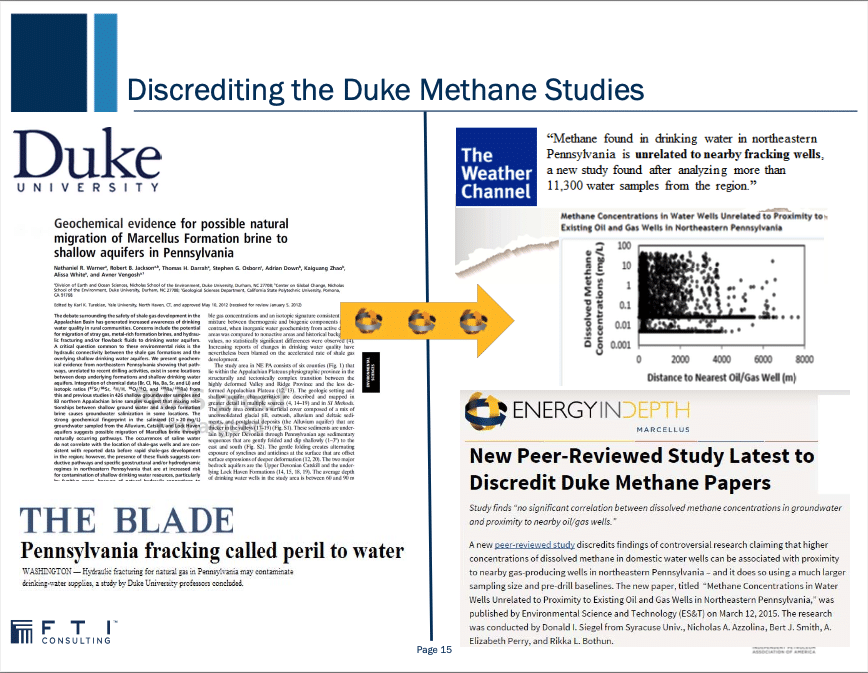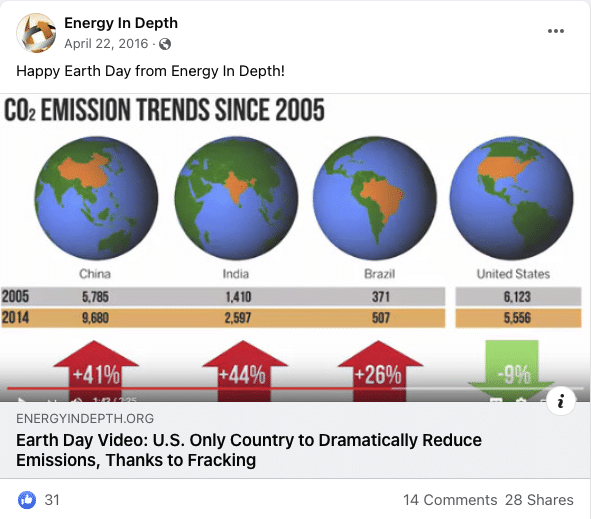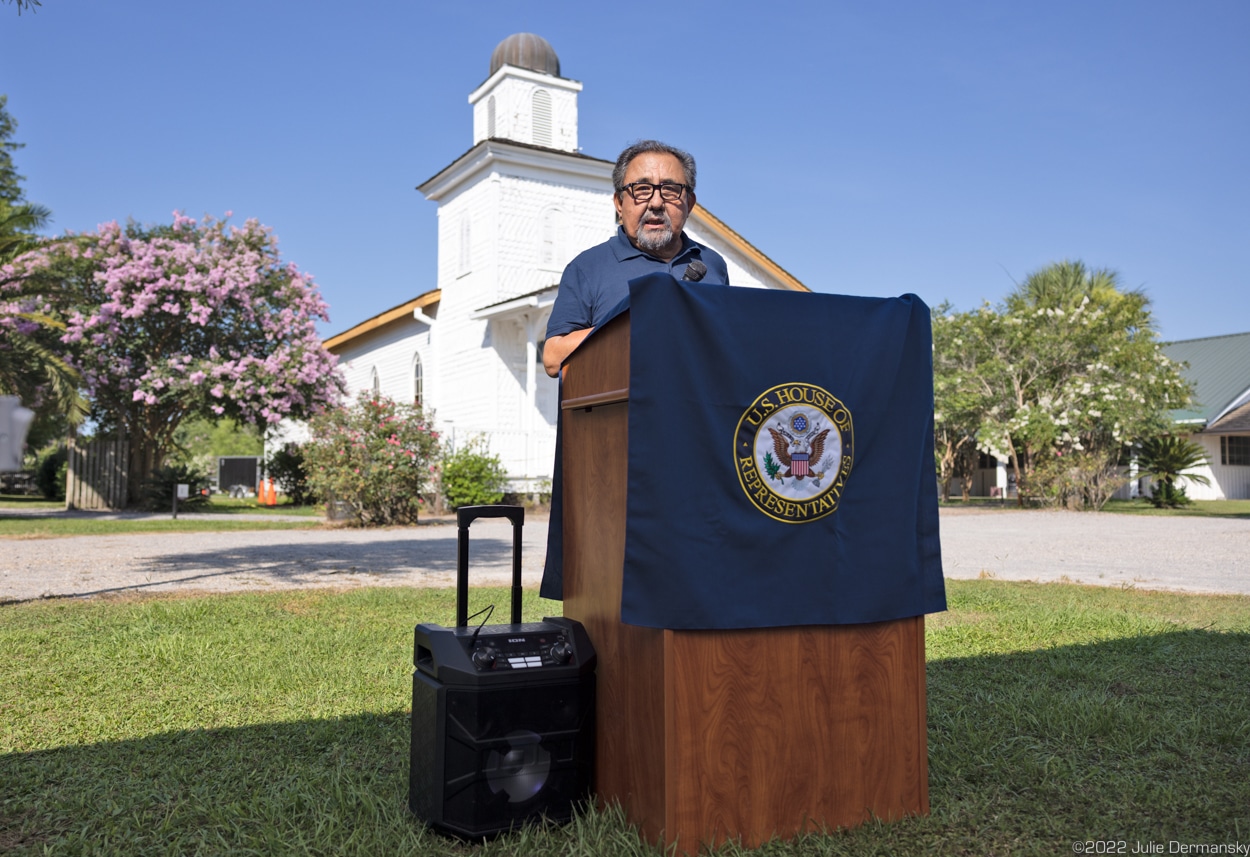A powerful Washington, D.C., consulting and PR firm, with a long history of waging influence campaigns for fossil fuel corporations, is under scrutiny by a congressional committee as part of a broader investigation into the decades-long efforts by the oil industry and its allies to block action on the climate crisis.
FTI Consulting, a billion-dollar firm that has a global presence, is not a household name. But it has been instrumental in an array of oil industry campaigns meant to sow doubt about climate change, attack climate scientists, and play up the benefits of fossil fuels.
Last year, a House committee held hearings in which members of Congress questioned oil executives on their role in peddling climate disinformation. But in June of this year, a separate committee, the U.S. House Committee on Natural Resources Subcommittee on Oversight and Investigations, sent letters to five PR firms — Story Partners, DDC Advocacy, Blue Advertising, Singer Associates, and FTI Consulting — requesting all documents related to their work running influence or marketing campaigns for oil, gas, and coal companies and their trade groups. The PR industry has been a critical but often overlooked player in the history of climate denial, as DeSmog has reported.
“For decades, fossil fuel companies and associations have engaged in public relations campaigns to downplay the threat of climate change and the central role fossil fuels have played in causing it,” the committee’s June letter stated. “Fossil fuel companies and trade groups have partnered with PR firms to use a variety of questionable tactics to undermine legislative and regulatory environmental initiatives.”
Two months after the request, FTI still had not turned over documents. The Committee grew impatient with the stonewalling, and on August 17, it fired off another letter, stating that “FTI has not wavered in its blanket refusal to provide even the most basic information about its clients or descriptions of the grounds for its refusal beyond the vaguest assertions of confidentiality and privileges.”
It then went on to warn: “FTI has provided no indication that this obstruction of congressional oversight will come to an end voluntarily. Unless FTI Consulting produces all responsive documents by 5:00 PM on August 24, 2022, the Committee will be forced to consider all of its options for obtaining this information, including, but not limited to, authorizing and issuing a subpoena.”
“Through its past client work and present refusal to cooperate with an ongoing congressional investigation, FTI Consulting is engaging in climate obstruction,” Christine Arena, a former VP at Edelman, who has tried to expose the PR industry’s role working on behalf of its fossil fuel clients, said in a statement to DeSmog. “Refusing to cooperate with the House Natural Resources Committee suggests that FTI knows it has something to hide, yet believes it is beyond reproach. Its flagrant disregard for the negative consequences of disinformation undermines the reputation of the PR and ad industry as a whole.”
A “Permanent Campaign Strategy”
FTI’s work for its fossil fuel clients goes far beyond creating billboards, online ads, or TV commercials, as a run-of-the-mill PR firm might do.
“You only hire a PR company when you have a problem to solve. And you hire an FTI when you’ve got real problems. You need dirty tricks. This is not just like selling a hamburger,” Kert Davies, founder and director of Climate Investigations Center, told DeSmog. “This is designing an influence campaign. It’s like designing a whole intelligence operation.”
The head of FTI’s Strategic Communications for the Americas is a man named Brian Kennedy, who was the communications strategist for drilling contractor Transocean, which owned the Deepwater Horizon drilling rig that exploded in 2010 in the Gulf of Mexico. Kennedy, who “is best known for his expertise in crisis management,” as his bio on the FTI website says, headed up Transocean’s PR work during the disaster and in the litigation that followed.
The campaigns waged by FTI for its fossil fuel clients are extensive and wide-ranging. As the New York Times reported in 2020, FTI helped set up regional astroturf websites for its oil industry clients, such as Texans for Natural Gas, New Mexicans for Economic Prosperity, Citizens to Protect PA Jobs, Western Wire, and the Arctic Energy Center. The websites artificially created the appearance of grassroots political energy, and shared misleading “news” that downplayed environmental damage from fracking while simultaneously promoting the benefits of pro-drilling policies.
“FTI remains a major, major contractor to the fossil fuel industry. They run front groups, fake news channels, they pose as reporters, they write reports about activists.”
– Kert Davies
The most high-profile climate denial project FTI is involved in is Energy In Depth (EID), a pro-fracking constellation of websites that spreads industry talking points. Ostensibly a project linked to the Independent Petroleum Association of America, EID — which promotes fracking, attacks climate scientists and environmental activists, and plays up the benefits of fossil fuels — was jointly launched with FTI back in 2009.
The website wasn’t just a project of small and medium-sized independent oil producers. In 2011, DeSmog revealed that Energy In Depth had the early backing of some of the largest oil companies, including BP, Anadarko, Halliburton, Chevron, Shell, XTO Energy (owned by ExxonMobil), and several other oil companies and trade associations. Without that financial backing from major oil companies, the project “would not be possible,” according to a 2009 memo DeSmog found.
In 2019, Huffington Post reported that the Independent Petroleum Association of America spent close to $2 million annually on Energy In Depth. That amounts to roughly a fifth of the trade group’s budget.
“We know some of the contracts FTI has with various trade associations,” Davies said. “But the truth is, we don’t know the half of it.”
Earlier this year, DeSmog published a 2015 FTI presentation in which the firm bragged about its deep connections with the oil industry and trumpeted its work on behalf of its fossil fuel clients. FTI’s presentation highlighted its work, through Energy In Depth, at “debunking” peer-reviewed studies that link fracking to water contamination, as well as providing “facts” to media about how methane emissions from oil and gas were in decline.

Energy In Depth acts as “a public-facing clearinghouse” and a “permanent campaign strategy” for the oil industry, Melissa Aronczyk, a professor of journalism and media studies at Rutgers University, told DeSmog in an email.
“FTI works for oil and gas clients by trying to shut down the conversation about climate-related problems before they happen – or especially, before they become a problem for their clients,” Aronczyk said.
The firm took the lessons learned with Energy In Depth around the world. FTI boasted at an industry conference in Brazil in 2014 that Energy In Depth had the ability “to say, do and write things that individual company employees cannot and should not.”
In another instance that has not previously been reported, FTI gave a presentation at a 2012 industry conference in Canada, in which it shared its experience “generating pro-gas news” in the Marcellus Shale in Pennsylvania, and how the firm intended to do the same in Quebec. At the time, the gas industry was facing public opposition to fracking in the Canadian province, and FTI, via Energy In Depth, wanted to shift public opinion in the industry’s favor. That included proactively creating pro-gas news in the media, as well as a sponsored trip for Quebec farmers to travel to fossil fuel-rich Alberta to learn about how shale gas is produced.

“FTI remains a major, major contractor to the fossil fuel industry. They run front groups, fake news channels, they pose as reporters, they write reports about activists,” Davies said. “They do all manner of strategic communications work to defend the honor of fossil fuel companies and trade associations.”
The House Committee has also sent a letter to a separate PR firm called Story Partners. Established in January 2010 by well-known PR executive Gloria Dittus, Story Partners has also run multiple influence campaigns for the fossil fuel industry in recent years. The firm led the American Petroleum Institute’s Vote for Energy campaign, which sought to equate drilling for oil and gas with jobs. Story Partners also ran campaigns for Venture Global LNG, a Gulf Coast LNG export company. And it also helped Noble Energy defeat a ballot measure in Colorado that would have increased setback distances between fracking operations and homes and businesses, a measure that would have encroached upon Noble Energy’s assets.
As it happens, Gloria Dittus previously founded Dittus Communications, which was acquired by FTI in 2005. In 2009, the Energy In Depth website was registered by “FD Dittus Communications,” a unit of FTI, according to the website’s registration.
According to a Story Partners spokesperson, “Gloria Dittus left FTI Consulting in early 2009 after the 2005 sale of Dittus Communications was finalized to Financial Dynamics (FD) and fully integrated into FTI Consulting at the end of 2008. Any Energy in Depth work was outside her tenure and likely launched following her leave from FTI.” Story Partners did not respond to questions from DeSmog about their role running climate disinformation campaigns for fossil fuel companies.
Arena said that FTI is among a small group of “pariah” PR firms that “do not represent the majority of the PR and ad industry, but they are our industry’s biggest reputational liability.”
Astroturfing, lobbying, smear campaigning, oppo research, dark greenwashing, false amplification are not just unethical marketing practices. They are not marketing practices at all. #pariahs
— Christine Arena (@ChristineArena) August 18, 2022
“But the bigger point here is that these are deceptive practices that no ethical marketing firm should engage in, for any client. They muddy public understanding and suppress the truth by design and should therefore be repudiated by the PR and ad industry at large,” she added. “The silver lining here is that this moment of reckoning has the potential to change the communications industry for the better.”
Ultimately, FTI’s mission has been “to preserve the reputation of the fossil fuel industry as it has come under pressure around climate change,” Davies said. Referring to FTI’s direct involvement in spreading climate disinformation, he added: “In doing so, you are now part of the effort to hide the truth.”
In a statement to DeSmog, Matthew E. Bashalany, a spokesperson for FTI Consulting, said: “Our company takes the Subcommittee’s request very seriously. We continue to be in regular contact with subcommittee staff as we progress our efforts to be responsive to the chair’s request in a manner consistent with our legal obligations to preserve our clients’ confidentiality and privileges. FTI Consulting is called upon by clients in dozens of industries globally, including those involved in traditional, renewable and alternative energy development, and we are committed to ensuring that all professional services we deliver align with our firmwide position to support action to address climate change.”
It is unclear what will happen next, but the House Committee could subpoena documents or have executives appear before the congressional panel. The August 24 deadline came and went, and now the firm faces a potential subpoena. In an email to DeSmog on August 25, a day after the deadline, a spokesperson for the Committee said: “The Committee has not yet gotten an adequate response from FTI.”
Another spokesperson for the Committee told DeSmog, “stay tuned.”
Subscribe to our newsletter
Stay up to date with DeSmog news and alerts






